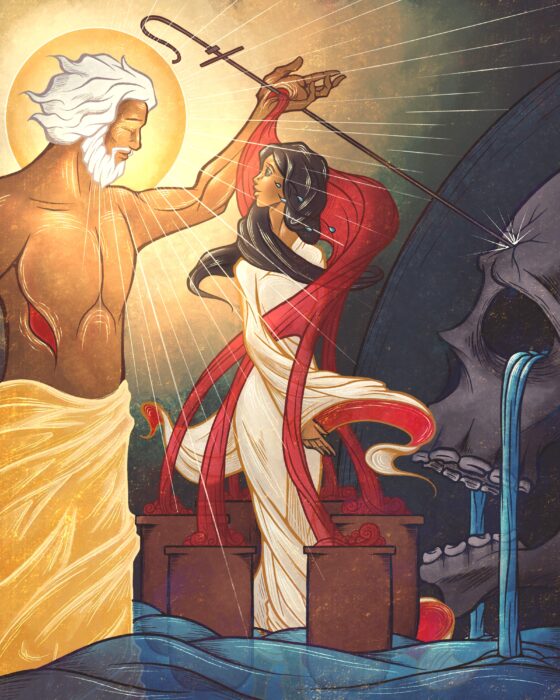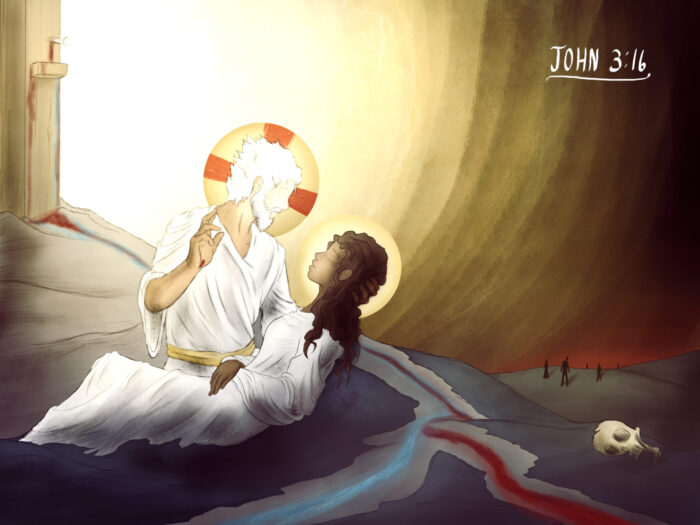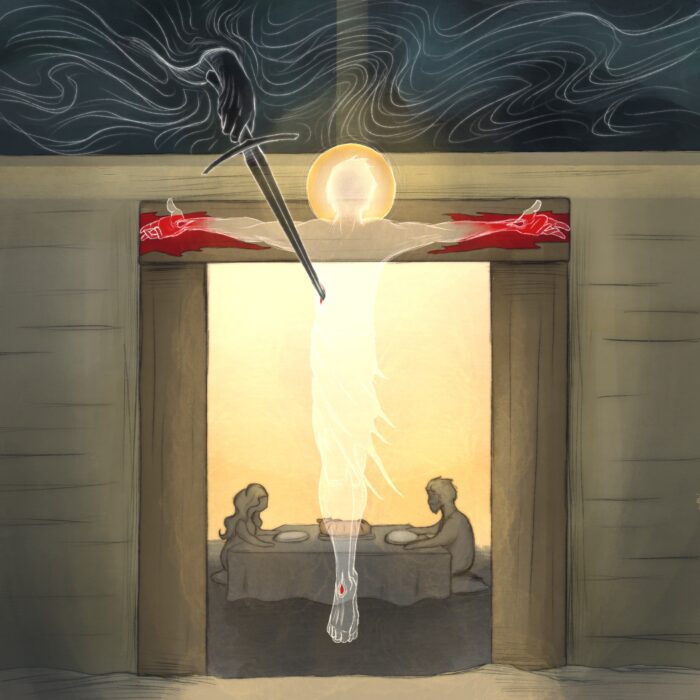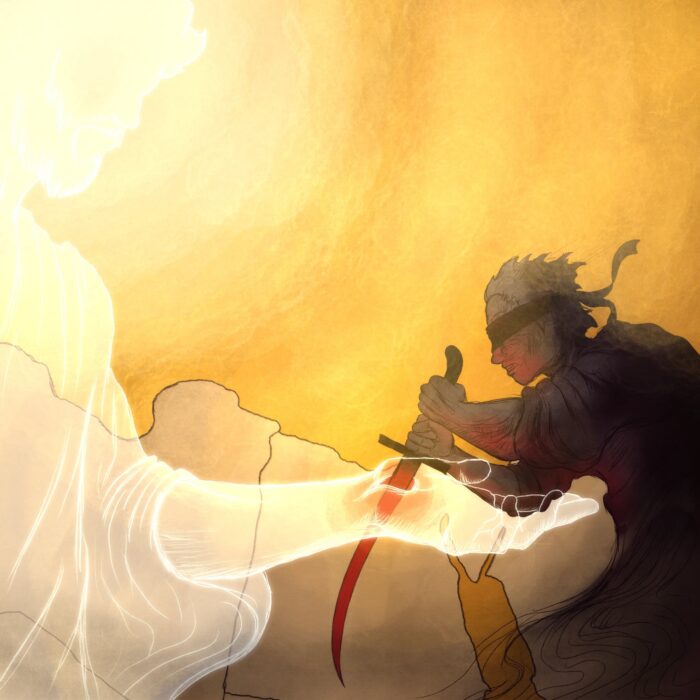John 20:16, “Jesus said to her, ‘Mary.’”
Mary stands weeping outside Jesus’ empty tomb…She weeps over the loss of her beloved Lord, but more than this, in weeping over Christ’s death—in which all the pain, grief, sin, death, and damnation of the redeemed creation are borne—she weeps for all the sufferings of the world. In this way, Mary’s tears may be understood as more than just one individual weeping over another…they are, in truth, the tears of all God’s people for every brokenness in this sin-shattered cosmos.
In Mary’s grief we see all our griefs…Note well, then, what becomes of it: Into the obscuring veil of her tears, a word is spoken, and not merely a word, her own name. Spoken by whom? By the very one whom she believes to be silenced forever, swallowed irrevocably into the mouth of death. And yet, beyond all hope, beyond all experience, that voice speaks again, and calls her by name.
She turns—turns from Grief to Hope unlooked for, turns from the mouth that speaks despair toward the mouth of Joy Himself, turns from Night to that Morning in whose light tears of grief shine as jewels of eschatological glory—and she sees, or rather, is seen by (16:22), the risen Lord. It is not merely that the Crucified One has returned to life, but that Life itself has prevailed over Death itself, that Morning has dawned beyond every conceivable Night, that the End of the song has come and it is grief-transfiguring gladness greater than the most gracious soul could dare imagine…The Lord is Risen Indeed.
I’ve tried to show this in today’s image. Mary is pictured in the moment of her turning from the grief-speaking mouth of the cross-conquered grave toward the risen Shepherd whose mouth calls His own by name, summoning his beloved to His own life and love and joy. The tomb’s weeping pictures the weeping of Mary, which—as a weeping over the death in which all sorrow is borne—is the weeping of the Bride, the Church, all the Redeemed. Yet, from the victoriously pierced hand of the Lord pours a stream of nuptial wine that fills the clay jars of this age and turns the standing waters of His Bride’s grief into the rich draughts of her eschatological joy.




